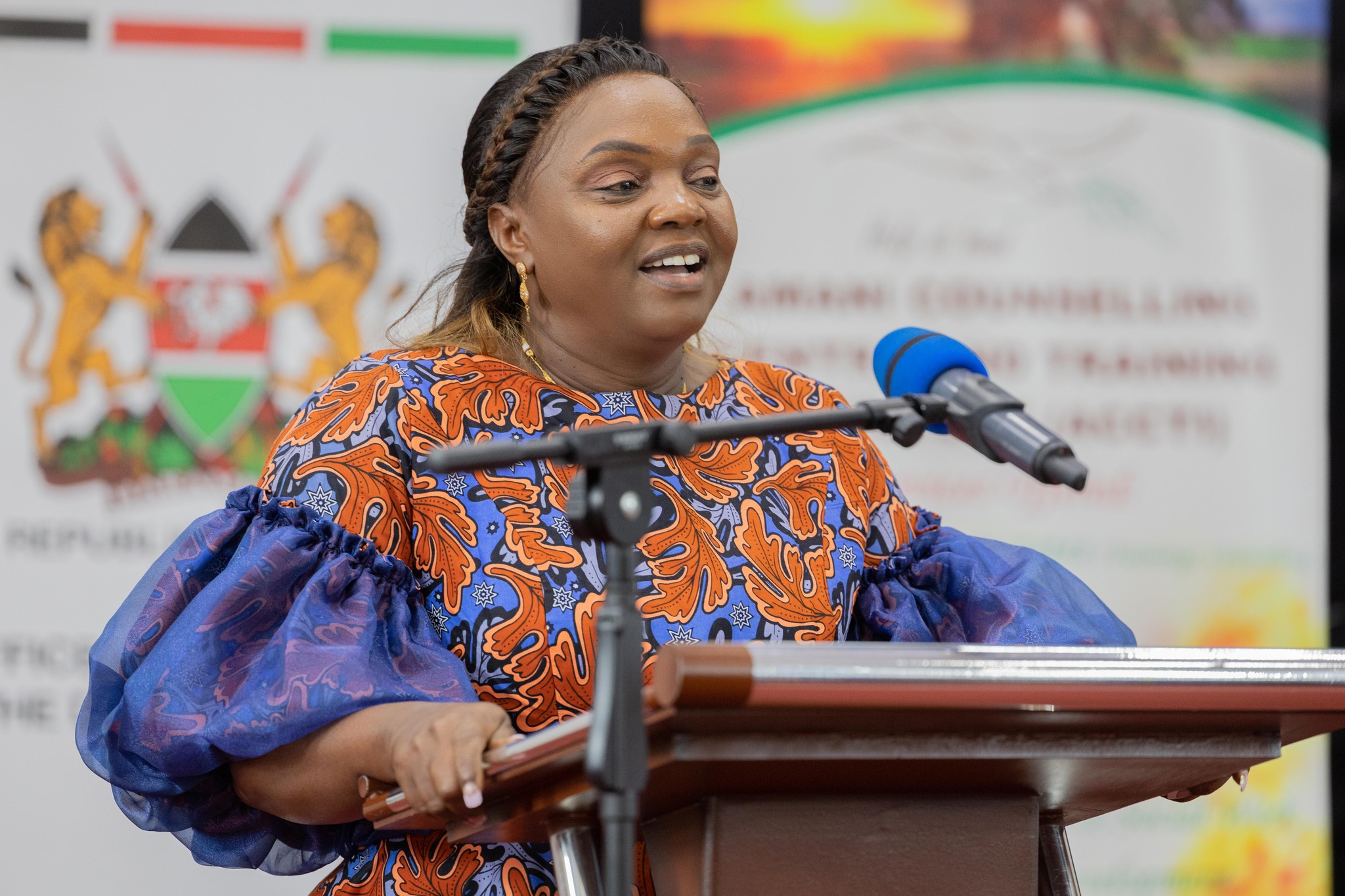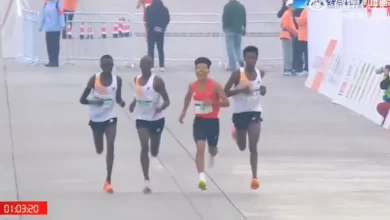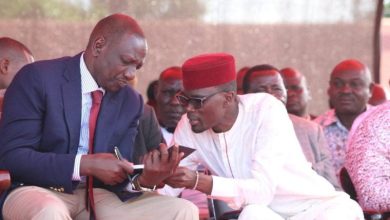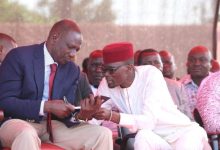Pastor Dorcas Rigathi: How I rose From being house help to Deputy President’s wife
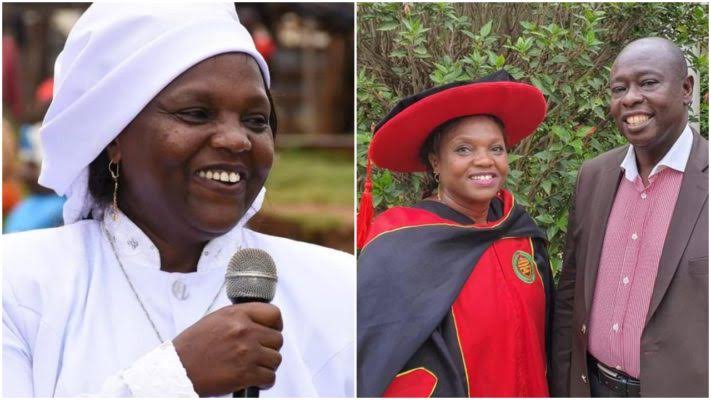
When Pastor Dorcas Wanjiku Rigathi talks about her husband, Deputy President-elect Rigathi Gachagua, a bout of cheer erupts and flashes across her visuals and vocals.
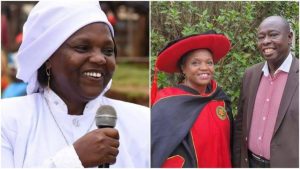
Her intonation matches the contours of the journey travelled, the trials overcome, the conquests made, the prevailing struggles and the dreams of the immediate future.
For 35 years, the power couple has stayed close, shadowing each other and raising a family together. And now, they have made history as the country’s second family after Deputy President William Ruto won the election to become the country’s 5th President after Uhuru Kenyatta.
A streak of miracles
The journey thus far, Dorcas said in an earlier interview, has been a streak of miracles. On the very first day she met Gachagua, she was on a suicide mission.
“At the time I was downcast, weighed down by misfortunes. It never rained for me and my family, it poured! The trip was supposed to be my last under the sun. I had laid everything in motion in my head, and waited on the moment,” she says of a July 1987 university students trip to late President Daniel arap Moi’s Kabarnet Gardens home.
At the time, Gachagua was a student leader at the University of Nairobi while she was a student at Kenyatta University. He had gone around the universities in a bus collecting fellow students for the trip, and ticking their names at the doorstep as they boarded.
“I still remember… he wore a suit and a brown tie. I thought he was quite interesting,” she recalls. Once at Kabarnet Gardens, Dorcas set her plan in motion; and darted off the convocation, making a beeline for the person of Moi. In her estimation, the president’s security would not take it lying down and would open fire on her.
“They did not even have the chance to stop me. When Moi saw me sprinting towards him, he stood up, and waited for me. When I explained myself after bumping into him, he said I should never imagine killing myself, that life had twists and turns, and encouraged me. He told me a lot of things, including his own story. In the end, I saw life in a different way.”
“We slept in a chicken pen at our grandma’s place. Some relatives didn’t want us to stay with her but she wouldn’t let us go…. In fact, one of my sisters died out there, of pneumonia,” she recalls.
She says the experiences she went through those days forged her lifelong desire to work with widows and the underprivileged. She believes they were mistreated purely on account of her mother’s status as a widow, and fears that her brothers would claim inheritance.
She underscores one particularly riveting act of mockery: “It was Christmas time when children are cheerful. One of our relatives came with two, very nice dresses, ready-made. My sister and I were same age as his children. He gave us the clothes to try on and we were excited to remove the rugs we had.
“When we came out, turning around, he told us… when you think about yourselves, do you really think you deserve these clothes? We were told to remove them in front of everyone.”
Secured a job
When their mother came back, they moved out to Kiandutu slums where she set up a small business as they attended Mungumoini primary school.
At Kiandutu slums, life was slightly better, except for the indignities of slum life, including washing clothes and waiting for them to dry while semi-dressed. For all the struggles, she says, it was a miracle that she and her brother passed their primary school exams and was selected to join Alliance Girls and Alliance Boys respectively.
But they did not have money for school fees. “I remember my mother telling us we shouldn’t worry, and that somehow help would come through. True to her, at one high noon, our then DO, a Mr Kibathi came by, and told us he had heard our plight, and paid our fees for a year,” she says.
At Alliance, she says, she was allowed to make and sell table clothes which supplemented bursaries. Her elder sister who was helping out died the year she reported to Alliance Girls, further complicating the situation.
Later she moved to St Francis for high schooling before proceeding to KU to study education. “I shook him off several times. On our first date, I insisted on paying for my dinner. He complimented me for it, and said he thought I could make a better mother. I was fascinated at the thought,” she says.
manager, getting a modest salary and enjoying the other perks that came with a bank job. In 1992, they went back to Nairobi with Gachagua at Office of the President and her at Coop headquarters as a manager heading the special duty department.
“It’s at that time that we had bought a plot for our Nairobi home. We combined our Sacco loans, and every month we would pour stones. It took us five years to build the house,” she said.
She says despite the good jobs they were holding, they tried many things, besides making and selling sweets. They started a furniture business and partnered with Uchumi Supermarkets to display their wares in all branches. Gachagua went big on wheat farming and land selling, she says.
In 2006, she quit the bank job to take care of family business, but also to serve God. She had been a lay pastor at House of Grace church for some time. She says her quitting was a call to a higher duty.
Prayer to be a running-mate
And when he came out successful, life changed around them: “When I was praying for him to be a running mate, I knew I was asking for more responsibilities. Now life now is not the way it was and people expect us to behave in a different way,” she says.
She takes note of what is said or written about her husband. In the recent past, Gachagua has attracted harsh social media commentary, through his words. The rice remarks, the six piece advocacy, and the promises to the youth.
“We have grown a thick skin for it. He himself is a seasoned politician. All these are instigated to narrow his scope and to slow him down. Of course its all twisted, because we know him. I for sure know him,” she says.
She is not afraid of hitting the political stage to support him.
“If he asks me I will go… there is nothing big about politics that I don’t know. Politics and church are not far apart. There is no kingdom without politics. The first politics, the king and the prophet came together.”




